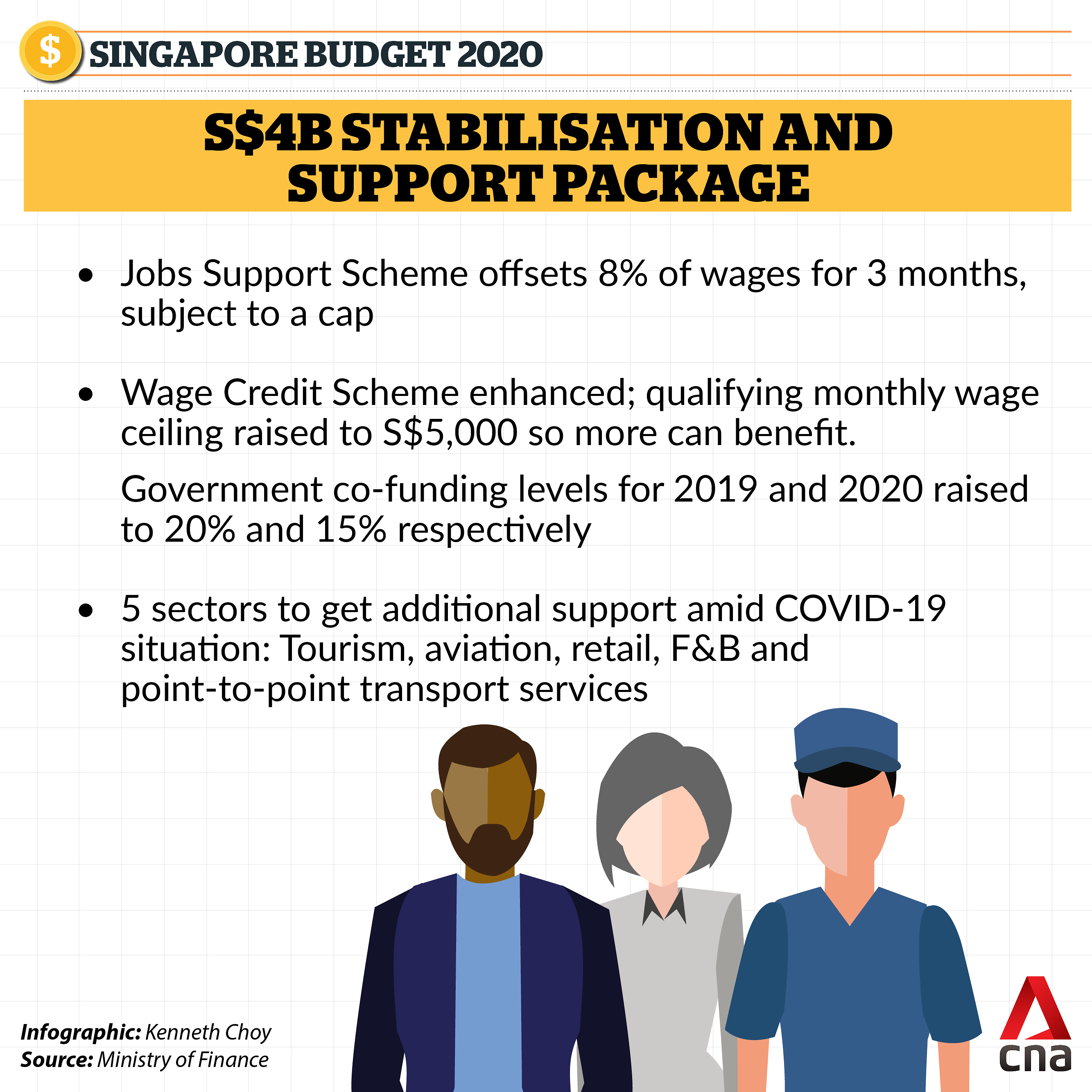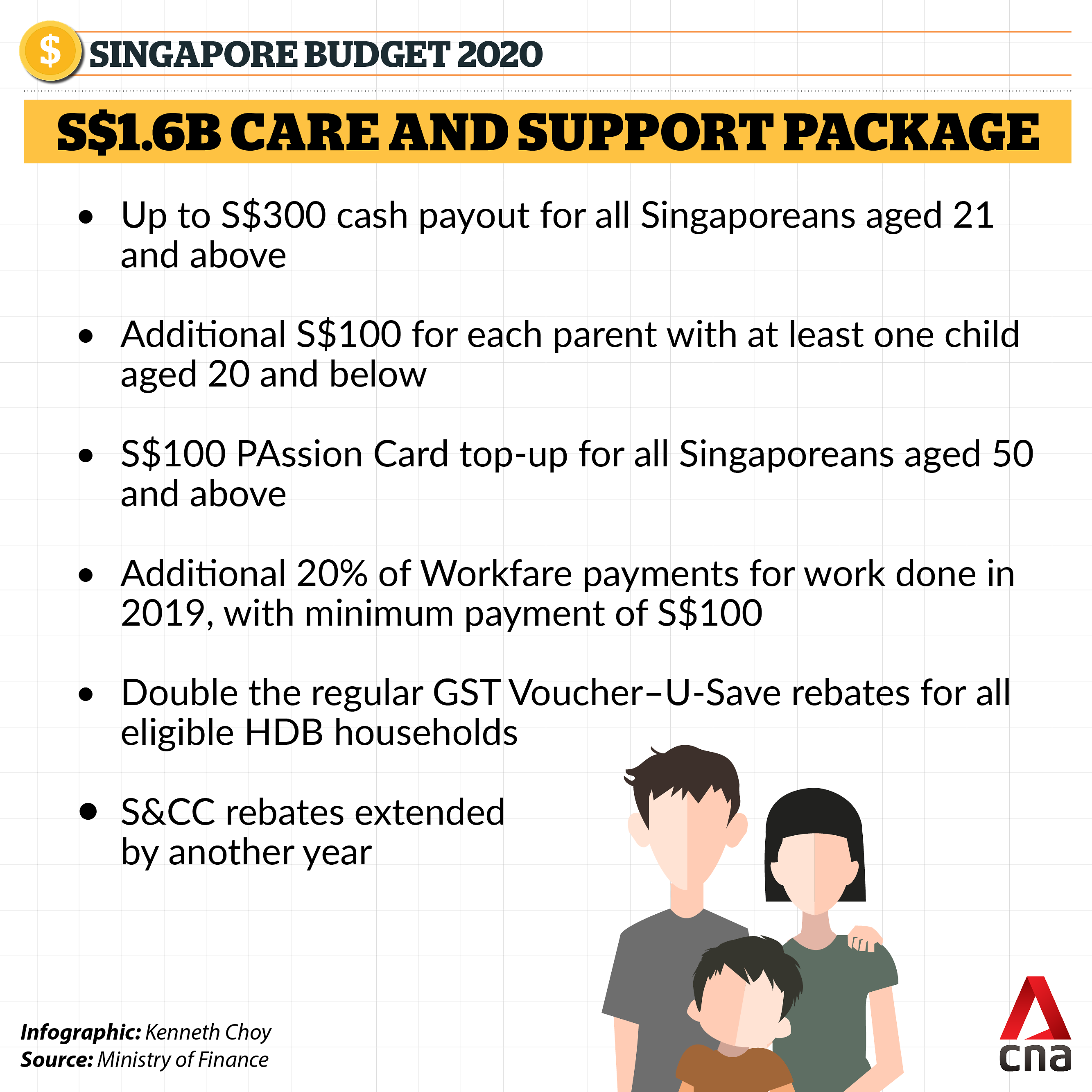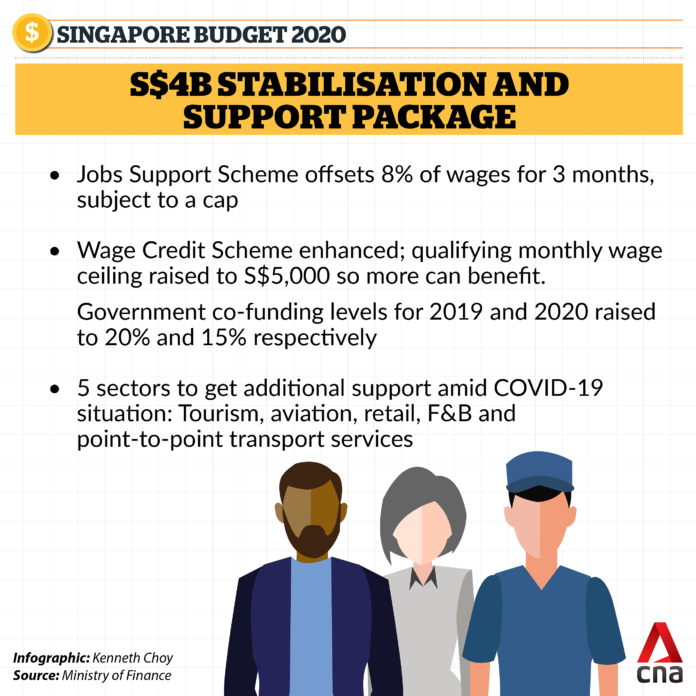SINGAPORE: The newly announced measures to help firms, workers and households amid the novel coronavirus outbreak are appropriate for now but the Government is prepared to do more if necessary, said Deputy Prime Minister Heng Swee Keat on Wednesday (Feb 19) at a post-Budget television programme.
He was responding to a question about the possibility of a supplementary Budget if the COVID-19 situation is prolonged. The programme featured four invited guests and was hosted by CNA Digital chief editor Jaime Ho.
“We do not know how severe and how long this outbreak will be. Therefore, our current assessment is that what we are doing now is appropriate,” said Mr Heng.
“But as I said in the Budget, we can and are prepared to do more if the situation warrants it.
“It is important that we stay calm and that we stay prepared. If there are any further needs, we will do something,” he added.
READ: 10 things you need to know about Budget 2020

A day earlier, Mr Heng, who is also Finance Minister, announced that Singapore will set aside S$800 million to support frontline agencies in their efforts to contain the COVID-19 outbreak, with the bulk allocated to the Ministry of Health.
There will also be two other special packages worth more than S$5 billion. The first is a S$4 billion Stabilisation and Support Package to help firms with their cash flow and retain workers, while the other is a S$1.6 billion Care and Support Package to help households with their expenses.

Given how the COVID-19 outbreak will have a significant impact on Singapore and the global economy, Mr Heng said the measures are intended to protect Singaporeans’ jobs, stabilise the economy with a “sufficient fiscal boost” and help sectors that are directly affected, as well as support households.
READ: Businesses welcome S$4 billion package as timely relief, but some say more help needed
Responding to a question on whether the Budget will help workers in the gig economy whose livelihoods have also been affected by the virus, he noted how there has been “very good work” between taxi and private-hire care operators, as well as with the labour unions.
A S$77 million Point-to-Point Support Package was announced last week. The Government will contribute S$45 million towards the package, with the remaining provided by taxi and private-hire car operators.
But given the wide range of gig economy workers with different work arrangements, Mr Heng said it is “not possible” to have initiatives that cover everyone, especially within a short time.
The Government will need to look at this more carefully, although he stressed that those in the gig economy still receive support in other ways such as the various household support packages and special one-off payments for individuals.
Finance Minister Heng Swee Keat, second from left, pictured here on Feb 19 at Ask the Finance Minister 2020. (Photo: Try Sutrisno Foo)
YEARLY SKILLSFUTURE TOP-UPS?
During the hour-long programme, Mr Heng also fielded questions about the need to remain focused on the longer-term goal of transforming Singapore’s economy and what that means for workers.
In this Budget, a total of S$8.3 billion has been allocated for transformation and growth strategies over the next three years. This includes building stronger partnerships, deepening capabilities of local enterprises and developing the workforce.
For the last aspect, a one-off SkillsFuture Credit top-up of S$500 for every Singaporean aged 25 years and above, a new enterprise credit for firms and a mid-career support package has been announced as part of the “next bound” of the SkillsFuture movement.
Asked if there could be a yearly top-up of the SkillsFuture credit instead to spur more Singaporeans to learn new skills, Mr Heng said it will depend on the take-up rates this time round.
Since the launch of SkillsFuture five years ago, nearly half of Singaporeans have tapped on their S$500 credits.
“We hope that the take-up this time will be higher,” he said, adding that a five-year deadline has been set for the new top-up “to encourage everyone to take action early”.
Budget 2020: 5 things to know about measures to help Singapore households with living costs
MINIMUM WAGE MODEL?
Turning to the topic of cost of living, Mr Heng was asked if the Government would consider a minimum wage model at some point to help tackle the issue of basic needs.
He replied that while the objective of having a minimum wage is good, the question is whether it can be done in a better way.
The progressive wage model which sets a wage floor for certain sectors, as well as efforts like the SkillsFuture movement to help Singaporeans build up necessary skills and become more productive, are long-term strategies that will “be much more sustainable”, he said.
He added that one of Singapore’s major challenges is an ageing population and a shrinking workforce.
“What it means is that the ability of those who are working (and paying taxes) to support those who are not working, will come down over time. We really don’t want to impose a big burden on our future generations.
“So the question always is – is this an idea that can be implemented in a sustainable way over the long term, and is this the best way?” he said.
“The simplest way may not usually be the best.”
Finance Minister Heng Swee Keat (R) at Ask the Finance Minister 2020 (Photo: Try Sutrisno Foo)
TACKLING CLIMATE CHANGE
In his Budget speech, Mr Heng also announced that Singapore aims to phase out the use of internal combustion engine vehicles here by 2040, and outlined a slew of measures aimed at encouraging the use of more environmentally friendly alternatives, such as electric vehicles.
Mr Heng said technology will likely continue to evolve so Singapore should keep an open mind to other environmentally friendly vehicle options.
But at the moment, electric cars seem to be the “most promising” option and if Singapore can lay out the necessary infrastructure, it should be able to catalyse the use of these cars in Singapore, he added.
READ: Incentives likely to encourage electric vehicle adoption in Singapore, but questions remain, say analysts
Meanwhile, apart from the Government’s efforts, Singapore’s goals to tackle climate change will need to involve Singaporeans as well, said Mr Heng.
“We can do something ourselves because the choices we make shape the carbon footprint,” he said. “Every one of us can make a difference.”





